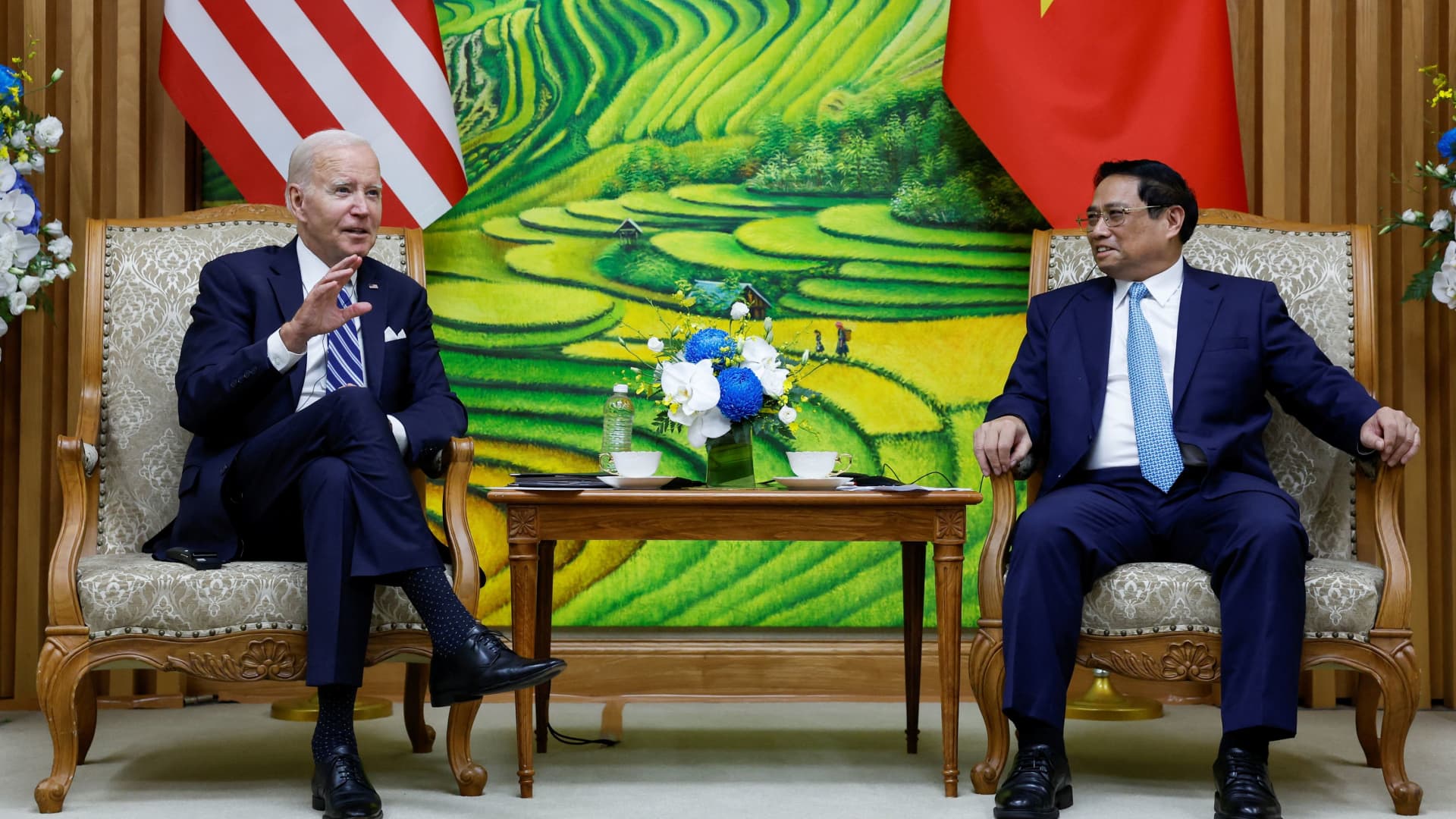
Nearly fifty years after the fall of Saigon, the United States agreed to help build up Vietnam’s defense capabilities, a tacit acknowledgement that China poses a greater geopolitical challenge today to both nations than they do to each other.
President Joe Biden and General Secretary Nguyễn Phú Trọng of the communist party of Vietnam agreed to “welcome further cooperation in defense industry and defense trade” between the two countries in a joint statement released Monday.
“The United States is committed to continuing to assist Vietnam to develop its self-reliant defense capabilities in accordance with the needs of Vietnam and established mechanism.”.
Vietnam upped the U.S.’s diplomatic status to a “comprehensive strategic partner,” the country’s highest tier placing the U.S. on par with China. Biden said the move represented how much relations have moved on from the “bitter past” of the Vietnam War.
“We can trace a 50-year arc of progress between our nations, from conflict to normalization, to this new elevated status,” Biden said Sunday.
The president said “enormous opportunity” exists between the two nations.
“Vietnam and the United States are critical partners at what I would argue is a very critical time,” Biden said. “I’m not saying that to be polite.”
Biden stopped in Hanoi, Vietnam over the weekend after attending the Group of 20 summit in New Delhi, India. In both countries Biden stressed that Washington’s foreign policy was not meant to “contain China.”
“I don’t want to contain China,” Biden said at a news conference in Hanoi. “We’re not trying to hurt China.”
“We think too much in Cold War terms,” Biden said. “I am sincere about getting the relationship right.”
Yet a day later, a top Pentagon official placed the U.S.-China relationship in precisely those terms, underscoring how difficult it is to shift away from great power competition mindset.
While stressing that “war isn’t inevitable,” Secretary of the Air Force Frank Kendall on Monday warned that China is bolstering its military capabilities to take on the United States.
“Today, the intelligence couldn’t be clearer,” Kendall said at the Air and Space Forces Association annual conference. “Whatever its actual intentions may be, I could not say, but China is preparing for a war, and specifically for a war with the United States.”
By CNBC

